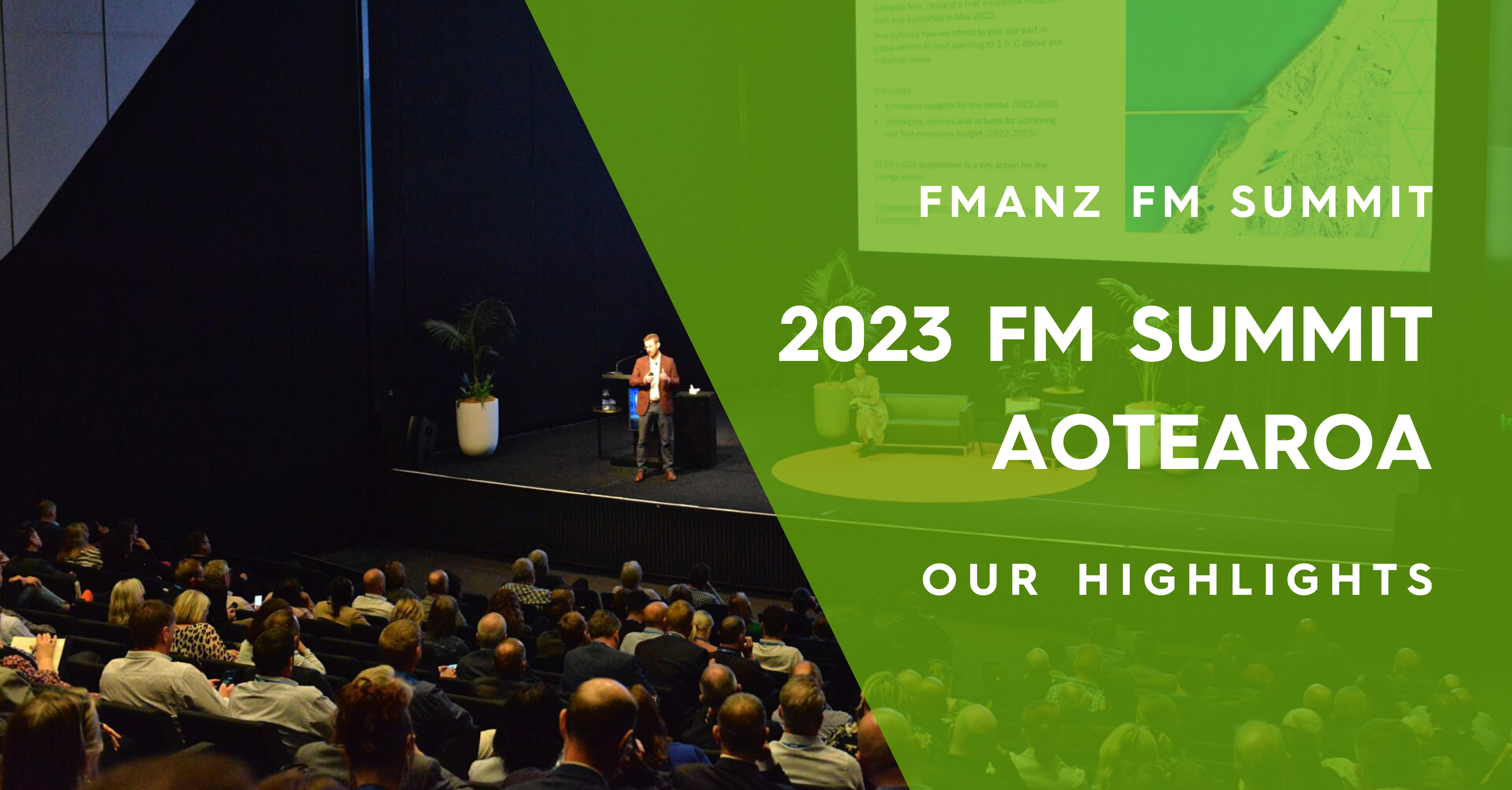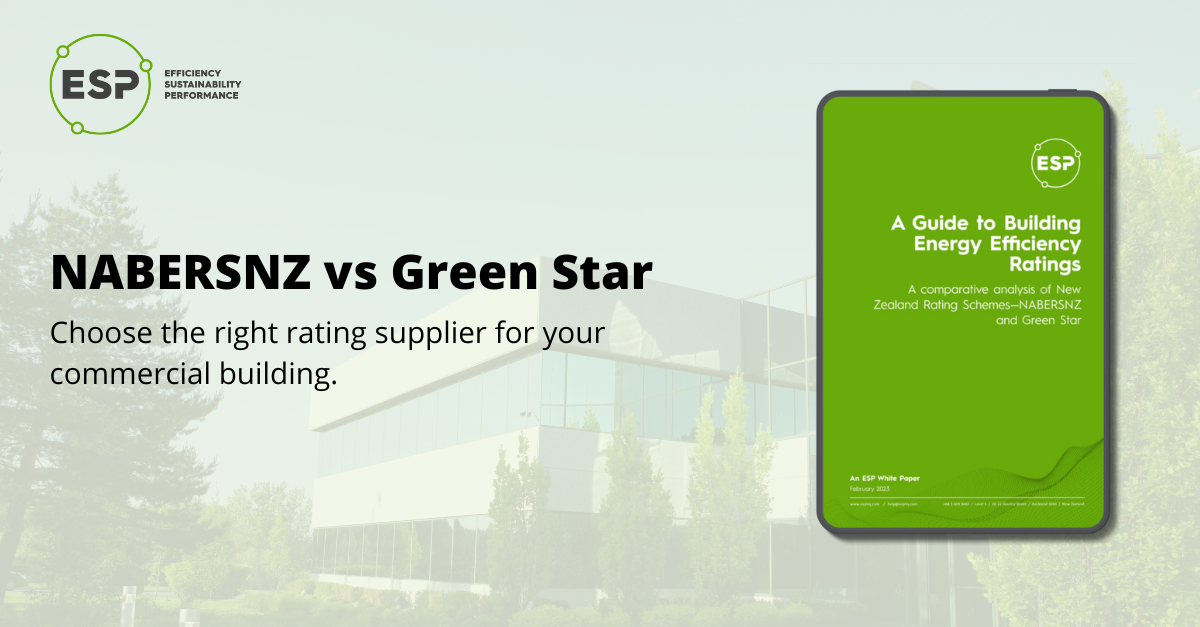
News, climate change, climate change commission, carbon footprint, carbon emissions
FM Summit 2023: Sustainable conversations in facility management
The ESP team had a fantastic time over 20th-21st September at the 2023 Facility Management Summit Aotearoa (FM Summit), hosted by FMANZ in Christchurch. We always look forward to the FM Summit, an event which leads the thinking and approach to sustainable facility management in New Zealand. The event showcased new research and was filled with in-depth-conversations around improving wellbeing and lowering carbon pollution through better asset management. The conference also featured the annual industry awards dinner. A chance to celebrate the outstanding professionals making change in the facility management industry and businesses who have provided exceptional service and made a positive environmental impact. A big shoutout goes to our client ASB, who were nominated for the Sustainability & Environmental Impact award. Here are our top event highlights.
Looking into facility management’s future
The FM Summit gave us a peek into the industry’s future, including guidance on proactive asset management, new research, extra funding, and upcoming regulations. Facilities managers are being encouraged to not only get involved in the day-to-day operation of their sites, but to actively consider how asset management can influence progress towards future Net Zero goals.
We were proud to sponsor a plenary session by BERL’s Nick Robinson, where he presented new research findings commissioned by FMANZ on the value the facilities management industry delivers. Highlights from Nick’s presentation included:
- Facilities management added $7.4 billion to GDP, and supported over 47,000 jobs in 2022, however, the economic impact is likely even larger.
- Each year, facilities management professionals are responsible for $7 billion of expenditure in NZ’s economy.
- It’s expected a larger scope of roles will begin to be included in the industry, many of which aren’t included in the ANZSCO occupational codes
Extra funding for heat pumps and lighting, and upcoming regulations, caused a buzz. Excitement was high particularly among those in the commercial building space, where funding for more efficient lighting was announced by EECA, who are offering support for assets needing lighting upgrades. Please don’t hesitate to contact us if you want help accessing this funding to improve site efficiency.
Additionally, new Ministry of Business, Innovation & Employment (MBIE) building regulations are expected to arrive soon, with speculation they’ll be like Australia’s rules. The new regulations are likely to cover not just commercial buildings, but manufacturing facilities and hotels too. The new rules are expected to drive businesses to work towards better ratings, and increase decarbonisation, for example, by removing gas for heating.
Achieving Net Zero and staying ahead
Though the 2030/2050 Net Zero goals seem far away, they are getting closer, and the FM Summit emphasised the need to consider future asset plans, longer-term vision, and asset management to meet the goals in time. Facilities managers can benefit from crafting asset and capital-intensive plans now to ensure they’re getting the right tech at the right time and are able to get better ratings and decarbonise efficiently.
Longer-term vision in asset management was exemplified by Ngāi Tahu Holdings’ 70-year strategy plans, presented by Ngāi Tahu Property Facilities Manager Richard Lipscombe and Paul Rogers of Spire Consulting. The scope and detail included in Ngāi Tahu Holding’s asset management plans was great to see, the plan striving for impressive outcomes and including detail on their budget, portfolio, and direction into the far future.
The Summit showed attendees that ensuring their asset management is ahead of the curve will be critical for achieving Net Zero. A long-term asset management plan and vision, like Ngāi Tahu Holdings’, is essential. Setting up monitoring and reporting for future compliance will be required to stay ahead of the curve.
Our summary of the FM Summit
The FM Summit invigorated us about our role in the facilities management industry, and got us excited about the future. The conversation around new funding, upcoming regulations, industry research, and the need for long-term vision was pragmatic and thought-provoking. We’re looking forward to seeing how facilities management professionals use new funding, regulations, research, and vision to improve their asset management and achieve Net Zero.
The ESP team knows that by providing managers with the tools they need to measure, report, and reduce their facilities’ carbon emissions and energy, we can make help them get better ratings and decarbonise faster. If that’s something that interests you, you might like to use our free resource on deciding whether NABERSNZ or Green Star is the right rating scheme for your building, which you can download here.

